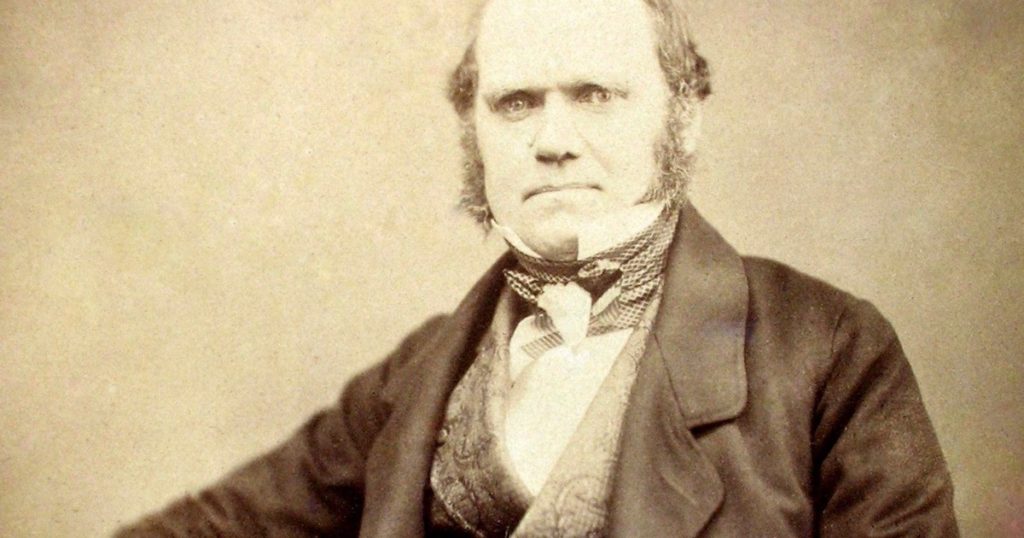 Culture & Ethics
Culture & Ethics
 Faith & Science
Faith & Science
William Wordsworth’s Posthumous Challenge to Darwinian Nihilism

In a series of posts, concluding today, I have been exploring the competing visions of nature in the work of William Wordsworth and Charles Darwin (find the full series here). When Darwin came to publish his Origin of Species nine years after Wordsworth’s death, the British public’s understanding of the natural world had already had ample time to absorb the poet’s influence. His was in essence a rival philosophy of nature which offered a counterweight to Darwin’s vision of a godless universe evolving by fixed, mechanical laws.
Paradoxically, Wordsworth’s theology may have formed a more effective counterforce to Darwin’s ideas than Biblical orthodoxy itself since the latter had been undermined by the German Higher Criticism. The Wordsworthian vision, on the other hand, was invulnerable to the kind of attacks suffered by orthodoxy since the poet did not have recourse to miraculous elements or claim truth status for them as empirical fact. The Wordsworthian worldview could not be disproved by cold-eyed Germanic logic.
A Brutal Philosophy
It is unsurprising that in his classic study of the popular reception of Darwinism in the decade or so following the publication of Origin, Alvar Ellegard found considerable resistance to Darwin on a number of counts.1 Some of the public’s objections were based simply on logical grounds. For instance, the transmutational, descent-with-modification theory was rejected since, as Darwin himself was obliged to admit, there was no fossil evidence to support his conjecture. People were also unwilling to accept the enormous role of chance postulated for evolutionary processes. For the later Victorian writer Samuel Butler, proponents of Darwinism were essentially “apostles of luck” with little statistical credibility on their side.2
Yet aside from logic there were other reasons for people’s more positive affective response to Wordsworth when contrasted with their reactions to Darwin. This related to the basic moral stature of the two men’s different philosophies. Darwin’s philosophy of natural selection derived from his reading of Thomas Malthus and the demographer’s survival of the fittest / devil take the hindmost ideas. Not surprisingly, such a brutal philosophy won him many enemies on the Left and it is thought that Charles Dickens chose Malthus as a basis for his deeply unappealing character of Scrooge in order that the iconic curmudgeon might act as an implicit reproach to a Malthusian philosophy deemed to be ignoble and inhumane.
A Fitting Accompaniment to Dickens
No greater contrast to Malthus/Darwin could be found than Wordsworth with his radically different attitude to social issues. Many of his poems such as “Michael” and “The Old Pedlar” derive from conversations Wordsworth initiated with dispossessed or otherwise unregarded members of society whom he encountered on his Lakeland wanderings — persons whom most people of Wordsworth’s social station might have elected to avoid. For the poet, on the other hand, his interlocutors possessed as much dignity and worth as their ostensible betters.
In that sense, Wordsworth’s poems might be understood as a fitting accompaniment in their political orientation to the novels of Dickens. Wordsworth shows the outworking of a spontaneous practical Christianity without benefit of doctrine or dogma. As Robert Ryan observed, “his poetry was found to be of continuing service in the maintenance of religious belief, even if the faith was so attenuated as no longer to resemble [orthodox] Christianity.”3 That contention seems to me to be a fair one, and one might add to it that the poet played some considerable part in the fact that his native land, often now labelled a post-Christian country, is, quite contrary to the spirit of Darwinian nihilism, far from being a land without deep spiritual roots and convictions.
Notes
- Alvar Ellegard, Darwin and the General Reader: The Reception of Darwin’s Theory of Evolution in the British Periodical Press 1859-1872 [1958] (Chicago: Chicago UP, 1990).
- See Neil Thomas, Taking Leave of Darwin: A Longtime Agnostic Discovers the Case for Design (Seattle: Discovery Institute, 2021), pp. 33-37.
- Charles Darwin and the Church of Wordsworth, p. 80.
